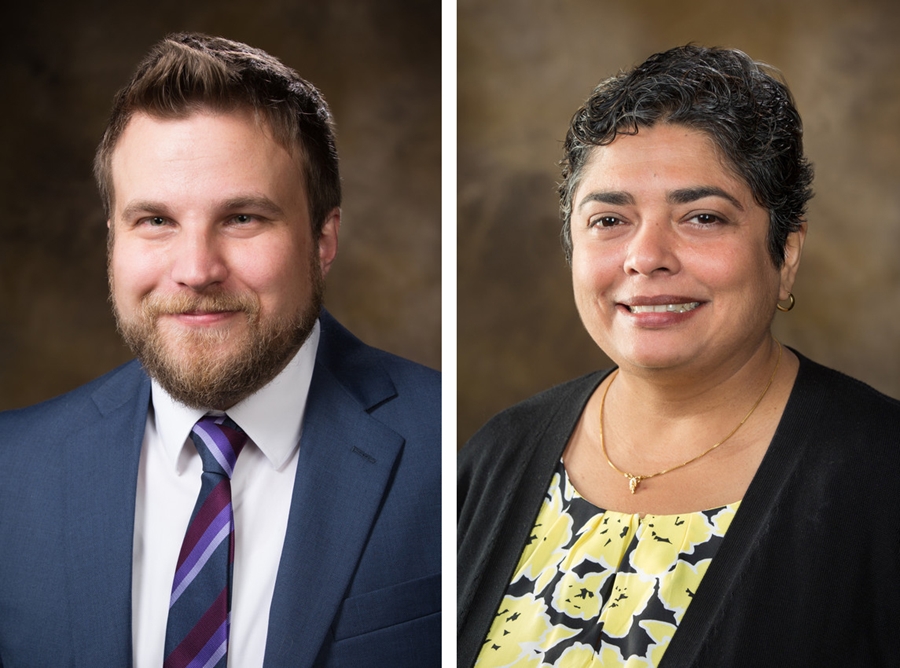An interdisciplinary research team has been awarded $395,112 to develop new tools to assess mitochondrial diseases, which are difficult to diagnose and treat, and can be fatal in children and adults.
The National Institutes of Health have awarded researchers from the College of Engineering and the J. William Fulbright College of Arts and Sciences a two-year Exploratory/Developmental Research Grant (R21). Kyle Quinn, assistant professor of biomedical engineering, and Shilpa Iyer, assistant professor of biological sciences, serve jointly as principal investigators on the project.
Mitochondrial diseases result from failures of the mitochondria — the powerhouse of the cell — and mainly affect cells in the brain, heart, liver, muscles, kidney, and the endocrine and respiratory systems.
Researchers are focused on identifying more sensitive methods to detect issues in mitochondria, a task made more complex by the nature of the diseases.
Diagnostic methods and treatments for mitochondrial diseases are limited because cells can carry a mix of working and non-working mitochondria, and the defects can be masked by the presence of working mitochondria. This unusual aspect of mitochondrial genetics plays an important role in the onset and severity of mitochondrial diseases and introduces challenges in diagnosis.
To address this complexity, researchers are pursuing new diagnostic methods to sensitively detect the changes caused by dysfunctional mitochondria.
Iyer and her team are conducting research on mitochondrial diseases and they have previously received funding from the Arkansas Biosciences Institute, the National Institutes of Health and the Department of Defense. Her team has obtained skin cells from mitochondrial patients and are creating disease-specific stem cells. Her research group is focused on understanding the role of bioenergetics and mitochondrial genetics in normal and diseased skin, nerve and muscle cells; key cell types that are affected in mitochondrial diseases.
This research led her to Quinn's lab, which has received grants from the Arkansas Bioscience Institute, the Department of Defense, and the National Institutes of Health, to study skin wound healing through advanced optical imaging.
Quinn said the collaboration was an easy choice.
"It is a natural fit to combine our imaging work on skin metabolism with Dr. Iyer's expertise in mitochondrial diseases and bioenergetics," he said.
This latest NIH award for both Quinn and Iyer supports exploratory research on the early detection of mitochondrial disease.
With the help of label-free multiphoton imaging methods under development in Quinn's lab, the award will allow the two researchers to assess cell metabolism of cells from mitochondrial patients.
Rather than injecting dyes or radiotracers, their methods use the natural fluorescence of mitochondria to visualize metabolic function. The team hopes to evaluate how this non-invasive optical method can supplement the current approaches to diagnosis, which requires painful biopsies of a patient's muscle.
Both researchers are moved by a desire to offer patients comfort and quality of life in spite of incurable diseases, a passion that brought them together.
"It's one of the most meaningful things we can do for children who suffer from such diseases," Iyer said.
Topics
Contacts
Kaitlyn Yates, multimedia specialist
Biomedical Engineering
479-575-4667, kyates@uark.edu
Nick DeMoss, director of communications
College of Engineering
479-575-5697, ndemoss@uark.edu
